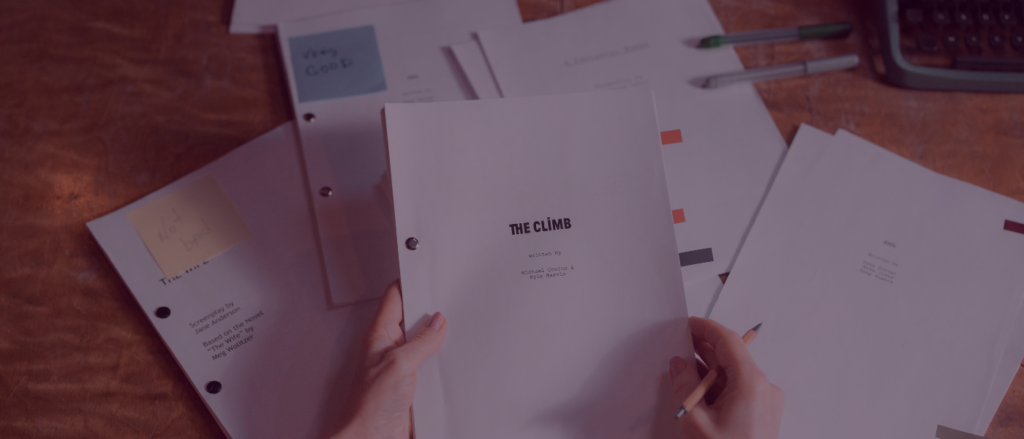A breakdown of how to approach the revision process, from an editor’s point of view
After finishing a piece, the last thing some of us want to do is get back in the trenches to revisit it from a new angle known as “revision.” But as Kiese Laymon, author of the award-winning memoir Heavy, recounts in his book, “The most important part of writing, and really life, is revision.” That’s because returning to what we’ve put down on the page as a draft is a form of love, of wanting our piece to be better, more complete, and more realized. It’s rare that a piece is written and then published exactly as it is; so much of our writing actually happens in the process of revising. So how does one begin to go about the revision process?
Below, we’re sharing some insights from our editors’ experiences editing hundreds of poems, short stories, and essays. Regardless of the genre or the form you work in, each of these different phases serve as solid frameworks with which to approach your work.
Developmental phase
At this stage of the revision process, you’re looking at your piece through the widest possible lens. Questions you might ask yourself: What is the structure of the piece I’m writing? Where are the points in the piece that feel weakest, or least exciting to you? If you are writing some form of prose, are the themes or the storylines coming through clearly? Maybe you’re noticing that there’s a lot of extra material in there that is weighing the piece down, or that talks around the points you’re trying to make without getting to it directly. Mark those places up on the page to revisit. If you are writing poetry, think about the form that the poem is currently in: are the constraints of the sonnet, or the haiku, or the ghazal actually suffocating the content of the poem itself? What happens if you try a different form, loosen things up a bit?
In the developmental stage, you’re wanting to make sure that you’re clearing away clutter and noting parts that feel underdeveloped. It’s about looking at the piece holistically and trying to understand which parts you’ll want to dig into in order to unlock the full potential of the piece, and conversely, which parts of the piece are really humming along nicely. In short, it’s about getting to establish or re-establish your relationship with the piece, through a critical but loving lens.
Content phase
At this stage of the editing process, the hope is that everything you might need for the piece is already contained on the page, even if the piece itself is not in its final form. After working on any structural considerations, the next step is to delve into the content itself. Zooming in a little more closely now, see if there are parts of the piece that are not quite striking the right tone. Is it word choice or a perspective that might need to be checked? How are you as the narrator treating the characters on the page? Are there any gaps in information or timeline that you might need to supplement in order to make the world more complete? If you’re writing fiction, maybe revisit the dialogue on the page: is it believable? Is it necessary? If you’re editing a nonfiction piece, note places where you might be inserting too much or too little of yourself into the story. How much “I” is needed to help bring the piece to life?
With poetry, look at the images that you’re conjuring: are there any that feel a bit too generic or unclear? Are there word choices you can make to bring an image more into focus, to strengthen their impact on the page? Maybe there are moments on the page that feel like the focus is too diffuse or a phrase is distracting from where you want the reader’s mind to be. The stronger the images and the stronger the voice within a poem, the more clearly it will ring for the reader on the receiving end.
Line editing
Not everyone is a natural grammarian (especially, say, if English is not your first language). All the same, there are certain things to watch out for that can make the difference between a sharp, incisive piece and one that is confusing or frustrating to read. Verb tense is often something that comes up for writers, and combing through your piece to make sure there is consistency across your verb tenses will help to eliminate a lot of confusion for your reader, regardless of what genre you are writing in. When it comes to poetry, things like word choice and line break can make a big difference for a poem that is just okay and one that is excellent. Don’t be afraid to try different versions of a poem, swapping in different words or phrases, or even making different line breaks, in order to get your poem to its most impactful form.
One underrated technique for line editing, also, is reading the piece aloud. If you’ve been staring at your writing for some time, things can start to blur together, but reading a piece aloud can offer clarity when it comes to what words or phrases give you pause, and/or where the piece is really singing. The hope is, always, to uplift the parts of your piece that feel less solid to reach the same level of excellence that other parts of your piece may already exhibit.



